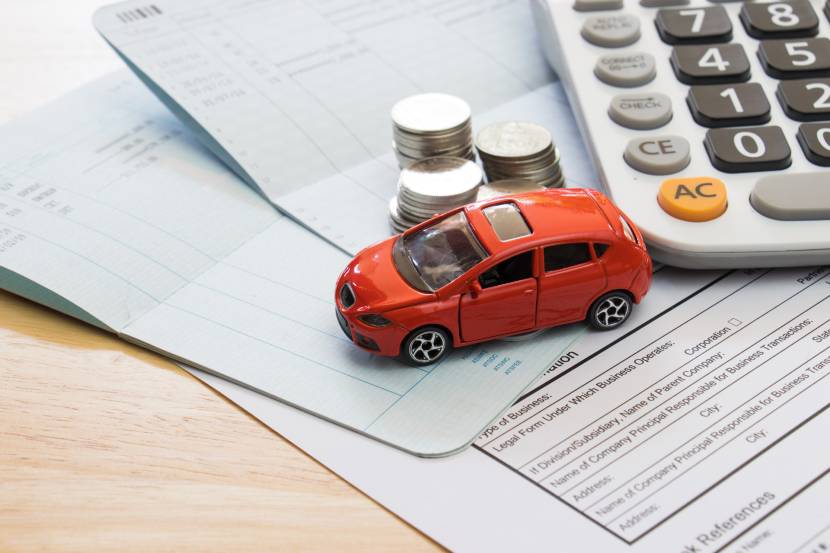Car insurance might seem like a confusing puzzle, but it’s essential to owning and driving a car. It’s like a safety net for your vehicle and your wallet, and in this comprehensive guide, we’ll break down auto insurance into easy-to-understand pieces for you. Whether you’re a new driver or just looking to improve your knowledge, we’ve got you covered.
Let’s explore the world of car insurance together, one simple step at a time!
Auto Insurance Comparison
As you might have seen in your initial search about car insurance, there are many different types of it, and each can be as confusing as the next. With that said, we’re going to create a car insurance comparison of each of these types and understand what differentiates them from each other.
Type of car
When it comes to auto insurance quotes, one size doesn’t fit all. Car insurance quotes for sports cars and high-performance vehicles tend to be more expensive. This is because these cars are designed for speed and are more likely to be involved in accidents. Insurance companies often view them as higher risk.
Sedans and economy cars are generally more affordable to insure. They are typically considered safe and practical vehicles with lower repair costs. This makes insurance premiums more budget-friendly for owners of these car types.
Similarly, you’ll find that commercial cars vs. privately owned cars also get different insurance rates offered to them. Accordingly, you’ll have to look up the specific car insurance online that will be appropriate for your car.
Coverage extent
The two types of coverage you’ll see very commonly when looking for the cheapest car insurance in Las Vegas include liability coverage and comprehensive coverage.
Liability coverage is an important part of car insurance. Auto insurance best helps pay for things if you cause an accident. There are two parts to it. One part helps pay for the medical costs of people hurt in the accident. The other part helps pay for fixing things that got damaged, like cars or property. The most money it can pay is set by the insurance company. It’s needed in most places to make sure you can pay if you cause an accident. But remember, it doesn’t protect your own car or your injuries. To make sure you have enough, it’s important to pick the right amount.
Comprehensive coverage is like extra protection for your car. It helps when things happen that aren’t accidents, like when your car gets stolen, damaged by fire, or something like that. If any of these things happen, the car insurance companies pay to fix your car, but you have to pay a bit too – that’s called a deductible. This is a good choice if your car is new or very valuable because it covers things you can’t predict. You don’t have to get it, but it’s a good idea if you want peace of mind and don’t want to worry about unexpected problems with your car.

Add-on plans for car insurance
Car insurance add-on plans are like extra protections you can add to your regular car insurance. They’re there to give you more help and coverage when you need it. For example, if you get into an accident, collision coverage pays for fixing your car, even if it’s your fault. If something happens to your car, like it gets stolen or damaged in a storm, comprehensive coverage takes care of it.
There’s also something called Personal Injury Protection (PIP), which helps with medical bills and lost wages if you’re hurt in an accident. If you get into an accident with someone who doesn’t have enough insurance, Uninsured/Underinsured Motorist coverage can help you out.
Other add-ons like roadside assistance, rental car reimbursement, and gap insurance give you extra help in specific situations. They make sure you’re covered when unexpected things happen while driving.
Car insurance premiums
Car insurance premiums are like regular payments people make to their auto insurance companies. Think of it as the cost you pay to keep your car insurance active. These payments usually happen monthly, every six months, or yearly, depending on your insurance plan.
The amount you pay for your premium depends on a few things. First, the insurance company looks at your driving history, like if you’ve had accidents or tickets. They also consider things like your age and where you live. If you’re a new or young driver, your premium might be higher because you might be seen as riskier to insure.
The type of coverage you choose also affects your premium. If you want more protection, like covering other people’s injuries in an accident, your premium will likely be higher.
Cheap Car Insurance Las Vegas
What makes auto insurance cheap? Where can I find auto insurance near me? In Las Vegas, there are a lot of people and traffic, which makes accidents more likely. When there are more accidents, insurance companies charge more for insurance. The hot weather in Las Vegas can also damage cars and make insurance more expensive.
To find cheaper auto insurance Las Vegas near you, first, you should compare prices from different insurance companies and check their location. Each company has its own prices and discounts, so it’s important to see which one is the cheapest for you. It’s also a good idea to drive safely and avoid getting tickets or having accidents because this can increase insurance costs.
Suppose you have other types of insurance, like for your home or apartment; you can sometimes get a discount if you get an estimate for car insurance from the same company. You can also choose to pay more money if you have a claim (this is called a deductible), and that can make your insurance cost less each month.
And that’s just about everything you need to know about car insurance. Summing everything up, you have to remember the type of insurance you’re going to need for your car and know where to look to find the cheapest rates in Las Vegas.







